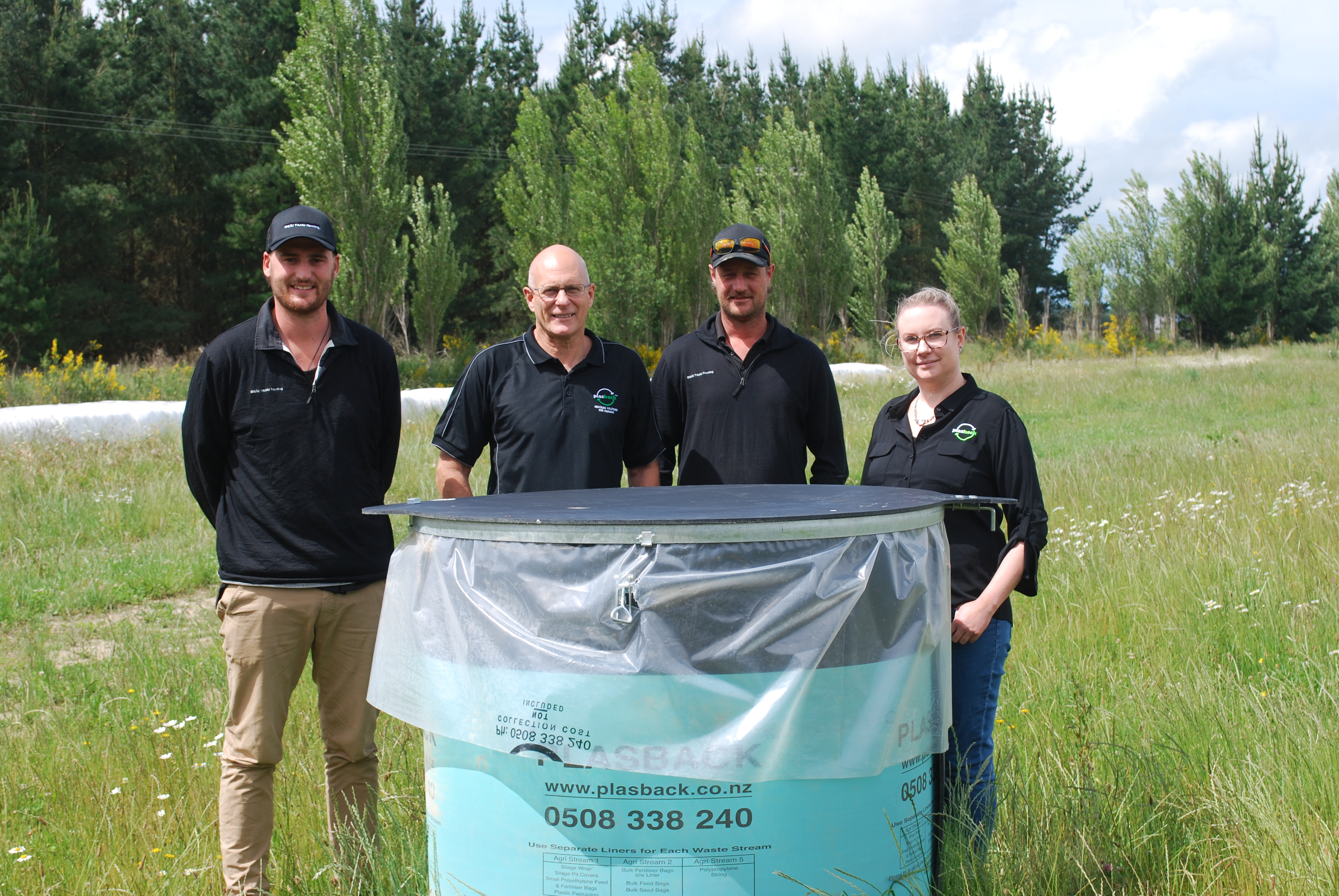Almost half of farm waste recycled
Jun 13, 2023

Ngāi Tahu Farming has diverted 45 per cent of its farming operation’s waste from landfill to recycled products thanks to PlasBack.
PlasBack is an innovative agricultural plastics recycling scheme, which is contributing to Ngāi Tahu Farming’s commitment to removing single-use plastics by 2025.
The scheme was introduced at both Te Whenua Hou and Balmoral farms last year. It involves farm plastics being turned into TuffBoard, a plywood replacement product that can be used in a variety of ways and locations on farms.
Ngāi Tahu Farming has been targeting waste reduction as part of the Te Runanga o Ngāi Tahu climate action plan Te Kounga Paparangi. Launched last year, the plan details 88 ways to tackle climate change, build resilience, and promote sustainable business practices.
Ngāi Tahu Farming Dairy Support and Grazing Manager George Mauger says PlasBack is a great solution.
“Recycling wherever possible to minimise our waste aligns well with the team’s kaitiakitanga (stewardship) values of looking after the land, water, and people. No one wants to be dumping plastic into landfill when there are better solutions out there.”
Ngāi Tahu Farming’s Canterbury operations include 2500ha of dairy, 1300ha of dairy support and 1100ha of beef and lamb finishing. A large amount of dry matter is required to keep the sheep and cattle optimally fed.
The largest waste stream on farm is plastic silage and baleage wrap. Te Whenua Hou harvests 5 million kilograms of dry matter for silage every year. It is stored in 20 silage stacks for the dairy and dairy support farms, and 5000 bales of baleage for the sheep and beef blocks. This creates baling twine, silage wrap and pit cover waste that has traditionally gone to landfill.
PlasBack came on board and held workshops with Ngāi Tahu Farming’s workforce of 60 kaimahi (staff) and sharemilkers. It changed the team’s mindset about how to handle plastic waste.
Although the new recycling system takes more time as waste silage wrap must be cleaned then placed into large bins to separate the plastic into a different waste stream, the outcomes are worth the effort.
Ngāi Tahu Farming now sends 150 to 180 bags of plastic to PlasBack annually. This amounts to 30-36 tonnes of plastic that is no longer going to landfill each year.